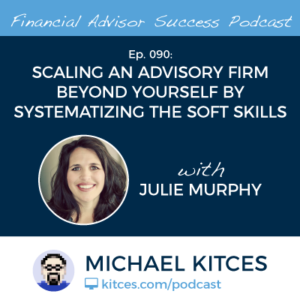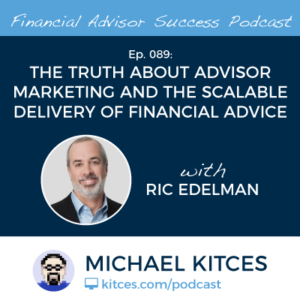In recent weeks, there has been a flurry of proposals to potentially modify Required Minimum Distribution (RMD) obligations, from President Trump’s Executive Order, to legislative proposals in both the House and the Senate. In some cases, the proposals would provide some “RMD relief” for those who don’t want or need to take withdrawals during life, although another proposal would actually increase required minimum distributions for beneficiaries after death!
In this week’s #OfficeHours with @MichaelKitces, my Tuesday 1 PM EST broadcast via Periscope, we examine the arguments for updating the RMD rules, delve into the proposed changes from both President Trump and Congress, discuss why the media hype over “RMD relief” might be much ado about nothing, and why despite the recent discussions of RMD relief that the greater risk is still for a potential RMD crackdown (especially on stretch IRAs) in the coming year or few!
The first proposal to consider is President Trump’s recent Executive Order, which focused mainly on MEPs (Multiple Employer [Retirement] Plans), but also included a directive to the Treasury Department to update the life expectancy tables used to calculate required minimum distributions. Which is arguably overdue, as the last time the tables were updated was 16 years ago, and recent medical advances have certainly increased life expectancies since then. Which means, at least ostensibly, that there’s an increased risk that RMDs will deplete retirement accounts too quickly.
However, the reality is that life expectancy increases have not been terribly dramatic – no more than about 2 years of joint life expectancy for a 70-something retiree. Which means, on a percentage basis, the first RMD would actually decrease only about 25 basis points – from 3.65% of the account balance to just 3.4% instead – or a whopping $250 of reduced RMDs per year on an account with a $100,000 balance. And of course, the taxes due on that RMD at a moderately affluent 22% tax rate is only $55 of real tax savings. Which itself is just tax deferral (since the taxes on the IRA will still be due someday, RMD or not!).
And unfortunately, the other leading proposal for RMD “relief” isn’t much better. In the House, Congress is currently considering a package of the three pieces of legislation, colloquially know as “Tax Reform 2.0”, which mainly seek to make last year’s Tax Cuts and Jobs Act permanent, but also propose to create a new Universal Savings Account (USA) for tax-free savings (with a $2,500 per year contribution limit but no limitations on how withdrawals must be used), and more importantly for retirees would eliminate RMDs on employer retirement plans with balances under $50,000 (along with repealing the age limit on regular IRA contributions for 70-somethings who are still working to allow them to still contribute while also taking RMDs).
Yet again, while these additional RMD proposals make sense, none of them would make a material difference for most clients of financial advisors, especially when we consider that RMDs on a $50,000 401(k) are relatively small to begin with, and IRA contributions must come from earned income (and not that many 70-somethings are still in the workforce) and still may not be enough to offset RMDs anyway.
Meanwhile, what hasn’t received much attention at all is a far more important proposal buried in the Retirement Enhancement and Savings Act of 2018 (RESA), currently under consideration in the Senate, which would eliminate the stretch IRA for most non-spouse beneficiaries, who would then be subject to the far-harsher 5-year rule instead!
The bottom line, though, is simply to understand that the RMD relief proposals that have been getting the most attention lately won’t likely have any meaningful impact for most clients, while the impact from the one that would make a material difference from a planning and tax perspective would be very negative indeed! Of course, there’s no telling how long Congress will continue to kick the can down the road – proposed legislation can linger for months, or years, or “forever” before ever actually being passed into law – but the point remains that despite the recent buzz for RMD relief, the greater risk for those with sizable retirement accounts is still that RMDs may become more restrictive in the future, not less!

 Welcome back to the 90th episode of the Financial Advisor Success podcast!
Welcome back to the 90th episode of the Financial Advisor Success podcast! Welcome back to the 89th episode of the Financial Advisor Success podcast!
Welcome back to the 89th episode of the Financial Advisor Success podcast!
